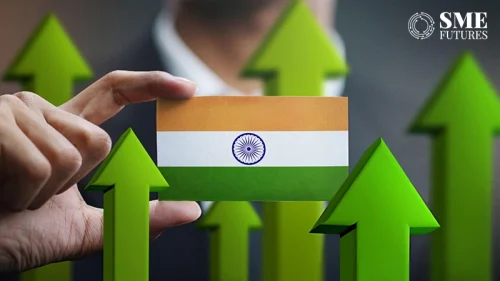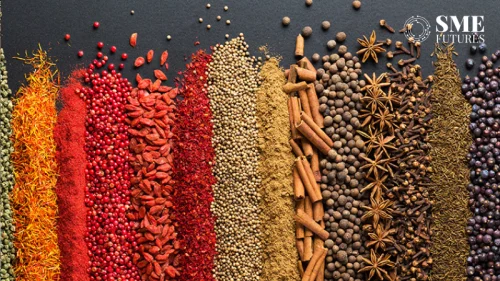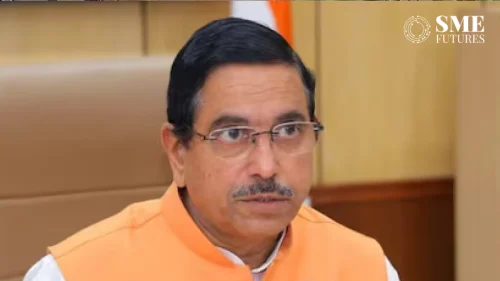The Reserve Bank of India’s (RBI) decision to increase the key lending rate by 25 basis points will hurt India’s growth prospects and hit business sentiment, the industry said on Wednesday and exhorted the RBI to revert to the policy of benign interest rates. However, a section from India Inc said the decision of the bank was a clear hint to the industry to push for growth by taking investment decisions, while some believe the RBI’s hawkish monetary policy stance is here to stay for a while.
The RBI bank for the first time in four-and-half-years raised key interest rate on Wednesday by 25 basis points to 6.25 per cent on inflation concerns arising from the surge in international oil prices. “Given that inflation is being led by supply-side issues, Confederation of Indian Industry (CII) believes that raising interest rate would hurt growth while proving unequal to the task of tackling inflation,” CII Director General Chandrajit Banerjee said.
PHD Chamber of Commerce and Industry president Anil Khaitan said the hike in policy rate would affect the overall business sentiments including the production possibility frontiers of industry, expansion of trade and services sector activity and rural demand. “Industry, especially small and medium enterprises are facing acute problem in availing finances from the banks vis-a-vis recent stringent norms adopted by few public sector banks,” Khaitan said.
Also read: World Bank forecasts 7.3 per cent growth for India, says India’s economy is robust
Mahindra group CFO V S Parthasarathy said the RBI was in a catch-22 situation in terms of managing a fine balance between emerging inflationary pressures and a nascent economic recovery. He hoped that going forward, the Reserve Bank of India would reassess and revert to the policy of benign interest rates which would be growth supportive.
“Going forward, the hardening of interest rate scenario is here to stay at least in the short term, however much we may not like it,” ASSOCHAM secretary general D S Rawat said. Rashesh Shah, president, FICCI said, today’s 25 bps rise in repo rate by RBI is based on the ground realities and it indicates towards the positive sentiments in the economy.
Recovery in Indian economy that has come on the back of structural reforms like GST, Bankruptcy Code and RERA is firming up, and investments have started to see an uptick; RBI stance would boost the animal spirits and confidence of businesses, added Shah. “The input cost pressures as highlighted by the RBI’s policy review would only increase for the exporters with the hiking of the repo rate by 25 basis points,” engineering exporters’ body EEPC India Chairman Ravi Sehgal said.
“The rate hike gives a clear hint to India Inc to push for growth, take investment decisions as it can now foresee growth rate to pick up,” said George Alexander Muthoot, managing director, Muthoot Finance. Realtors’ body Naredco’s national president Niranjan Hiranandani said the hike is justified on account of inflationary trends, global hardening of interest rates as also petroleum prices moving upwards. “It will not make a major difference to real estate. However, in the long run, we would prefer rates coming down,” he said.
HDFC Bank said the Reserve Bank of India is likely to go for more rate hikes like the one today on risks from factors like the minimum support prices for farm produce and firm global commodity prices.
While the consumer durables and home appliances industry said that the increase in repo rate would not impact the industry and would not impact the finance schemes used by the consumers for purchase. “The increase in repo rate may not impact the sales of durable products in the short and mid-term since companies largely provide finance schemes to the consumers,” said Manish Sharma, president of Consumer Electronics and Appliances Manufacturers Association.
Sharma further added that with positive momentum back in the economy and the prediction of a healthy monsoon season, the industry expects the consumer sentiment to stay intact with the overall demand to increase as well. In the second bi-monthly monetary policy for the current fiscal, the RBI revised upwards the retail inflation range to 4.8-4.9 per cent in the first half of 2018-19, and 4.7 per cent in the second half.
It includes the impact from HRA for central government employees, with risks tilted to the upside. With all the six members voting for an increase in policy rates, the monetary policy committee raised “repo rate by 25 basis points and kept the stance neutral”, RBI said in a statement here.
Excluding the impact of HRA revisions, CPI-based inflation is projected at 4.6 per cent in first half of 2018-19, and 4.7 per cent in H2, RBI said. Central bank retained the GDP growth for the financial year 2018-19 at 7.4 per cent.
You may also like to read: Small pharma companies feel targeted at govt decision to curb oxytocin production









